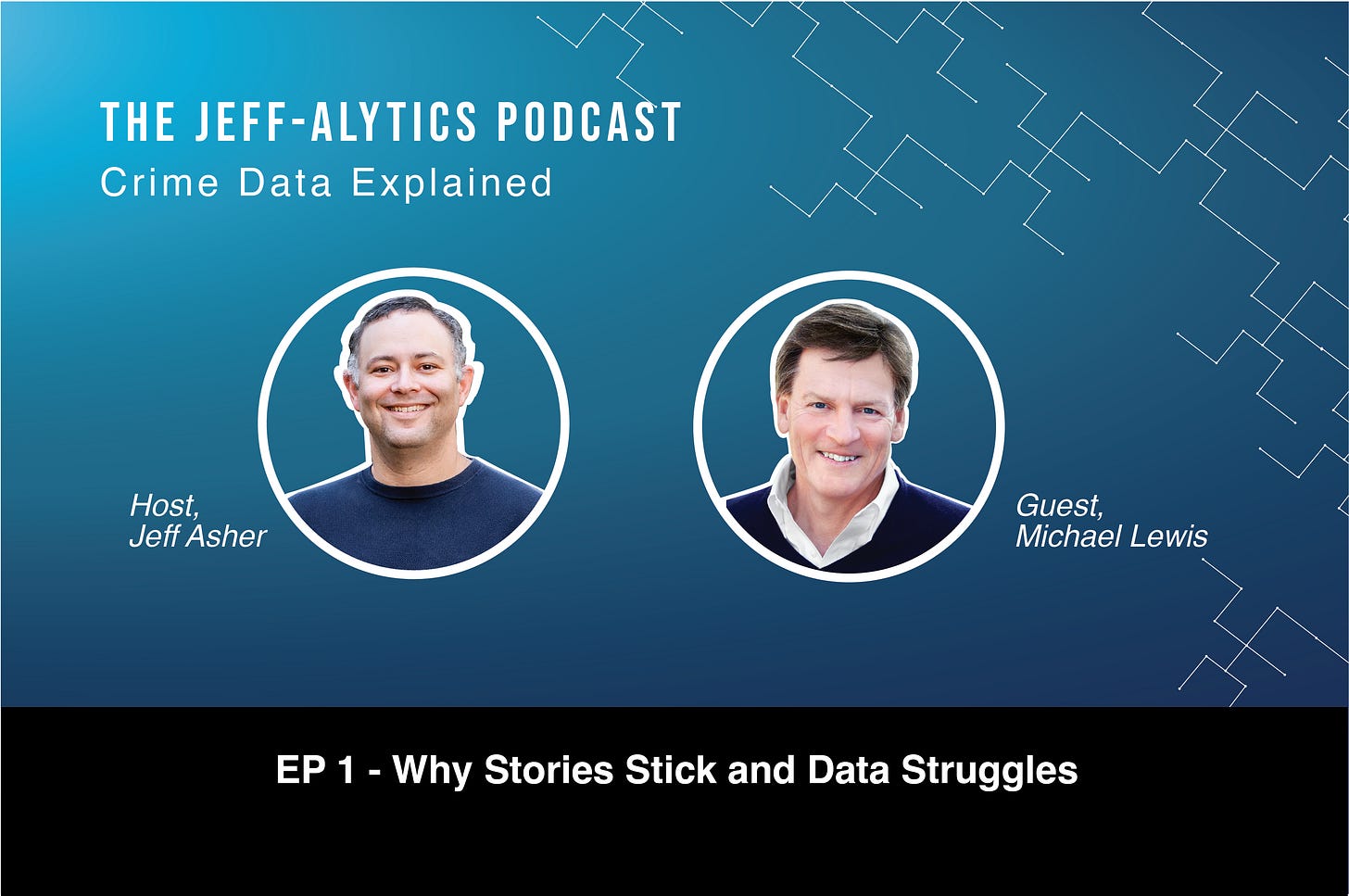The Jeff-alytics podcast formally launches with Episode 1 today! The show's theme is that crime is falling throughout America right now, but most Americans don't believe it.
Surveys show most Americans have thought crime is rising for almost all of the last two decades regardless of what the data actually shows. Indeed, crime data owes its very existence to police chiefs in the 1920s who were frustrated by the public constantly thinking they were in the midst of a crime wave.
This podcast is part of my answer for how to address the issue head on. It’s a broad story: why do people always think crime is rising and what can be and is being done about it?
For today’s episode, I talk with Michael Lewis, award-winning author of Moneyball, The Big Short, and many other excellent books.
This is in large part a storytelling challenge at its heart. Crime data may not be Michael's expertise, but storytelling absolutely is. I wanted to dedicate the first episode, therefore, to setting the table of how we can best approach this issue as one of communication. It's an engaging and hopefully entertaining conversation about building a 21st Century approach to communicating crime trends.
Give it a listen on the AH Datalytics website, on Spotify/Apple, or wherever you get your podcasts. Also, I’d be grateful if you subscribe so you get future episodes when they're released and if you feel like leaving a (glowing) review that’d be great too.
New episodes will be released every other week so you’ll get an extra newsletter post announcing each one as they come up.
Next time I have a terrific conversation with Laura Arnold of Arnold Ventures about her work funding the future of criminal justice (including the Real-Time Crime Index).



Good get!
Congratulations on a great first podcast. It brought to mind the comments of a Charlotte-Mecklenburg Police commander in the early stages of the opioid epidemic, which was largely confined to pharmaceuticals and not getting the public attention needed. "You need data and you need faces," he said. There's a whole story there about data, timeliness, and who had it and who saw it, that I suspect you live with, but that's another tale. Faces may be the important point of your conversation with Michael Lewis. And unlike the families sharing their stories about overdoses, I think the faces of victims, real and dramatized, make attention to the data harder. Woe to the police executive who addresses a crime that has caught the communities eye with, "According to the data ..." and rightly so. But I also thought, there are faces of those who use or have used data aggressively in policing to measurably good results. First, I thought of Bill Bratton and CompStat. Then, are there communities where significant improvements through using real time crime data have been made who would voice their recognition of the improvement. And there are folks, like my old friend Pete Gagliardi over at the RF Factor Substack, who are using data and advanced techniques to respond to gun related violence. And again in New York, where Chauncey Parker at the HIDTA is involved in RX Stat, where public safety and public health look at overdoses in a way modeled after CompStat. So there are faces, and stories, and best to you in bringing them forward in your podcasts.